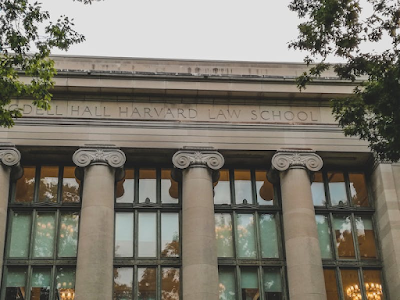Dreaming of Top Universities: Expectations of Rationality or Emotions?
What do you think of when someone asks what your "dream" is? For me, it is something that is entirely detached from reality. I dream of becoming the president of the US, never mind that I am not allowed to because I was born outside the country. Maybe going to space? Never mind that I have neither the physical nor intellectual attributes to start that journey. The point of a dream, for me, is not anything related to its objective likelihood. It represents the heart's ultimate desire, without bothering with the rationality behind how to achieve it.
Put in the context of going to universities, the "dream" correlates with school brand names. It makes sense that high school students dream of going to Havard or MIT. Their names are so famous that their renown extends beyond education into popular culture. Those who are not plugged into the world of higher education still associate these top universities with intellect and thus treat their graduates with enormous respect. High school students may not know how exactly to get into these universities (or whether they have what it takes), but they surely want that popular association with intellect and respect.As such, it can be puzzling to see people talking about their dreams, when it comes to education, in a very realistic way. Schools like Ohio State and Manchester can be excellent in many ways. But, as a fact, they are not as well-regarded among the general public as the likes of Harvard and Oxford. Individual students may have very specific interests (particular academic programs only available in some schools, personal reasons for being at that school or locale), but for the vast majority, "dream university" is associated with the renown of the university's name, a fact that I can prove from my daily conversations with students.
But at least in the field of higher education, the nature of the "dream" and the realistic need to actually go to university collides. Harvard can fulfill only the dream of some 1,300 students a year, a tiny fraction of the tens of thousands who apply to the university from around the world every year. Many more students dreaming about Harvard may be dissuaded from trying to apply in the first place, given the dauntingly low admissions rate, the amount of material that needs to be prepared, and the sheer price tag of finishing a degree there. In other words, the dream stays a dream for many.Yet, that objective reality is problematic for a college prep company. Alternatively, consulting services are advertised with the end goal of fulfilling a dream that initially seems to be unrealistic. Yes, Harvard might feel out of touch for a particular student now, but with the right advice and resources to boost the content of the application, the very best universities can become reachable. Such lines of thinking during the marketing process encourage sometimes irrational thinking about just how dreams can and even are meant to be a reality, through external help acquired with a tidy sum of cold-hard cash.
Hence, the teams that deliver those marketed services have their work cut out in reassessing those dreams. To make sure dreams can become realities, the teams need to reinvent dreams, making them more reachable for each individual student, while convincing the students that less ambitious goals are actually what they wanted all along (instead of pursuing vanity at a brand-name school). As they provide resources to help students apply to universities, they simultaneously set expectations that dreams can be both more mundane and more achievable. It is a remarkable feat of persuasion.In the process of this expectation setting, appealing to emotions matters. Yes, going to Harvard can provide you with the knowledge, connections, and elite status that help you get good jobs upon graduation. But many want to go to top schools for their self-satisfaction, fulfilling what some would call an egoistic belief that they belong with the best of the best. That emotional respect for higher education can be replicated through other means. Finding out and fulfilling the underlying reason for a dream, namely a sense of self-belief, without resorting to a top university, is possible and achievable.
Detaching the objective value of going to a top university (future salaries and universal reputation) from the emotional ones (respect from everyone and self-confidence) reveals the true power of expectation setting. Getting into Harvard is extremely hard and never impossible for many without sufficient financial and intellectual means. But redefining "Harvard" into something more reachable for each student, tailored to their own underlying needs and wants, will make the job much easier. Some need not get into Havard to achieve that emotional result they wanted from getting into Harvard. Finding that will help redefine dreams.





Comments
Post a Comment